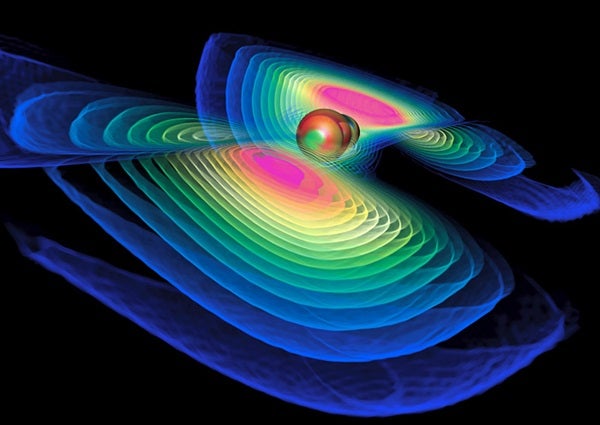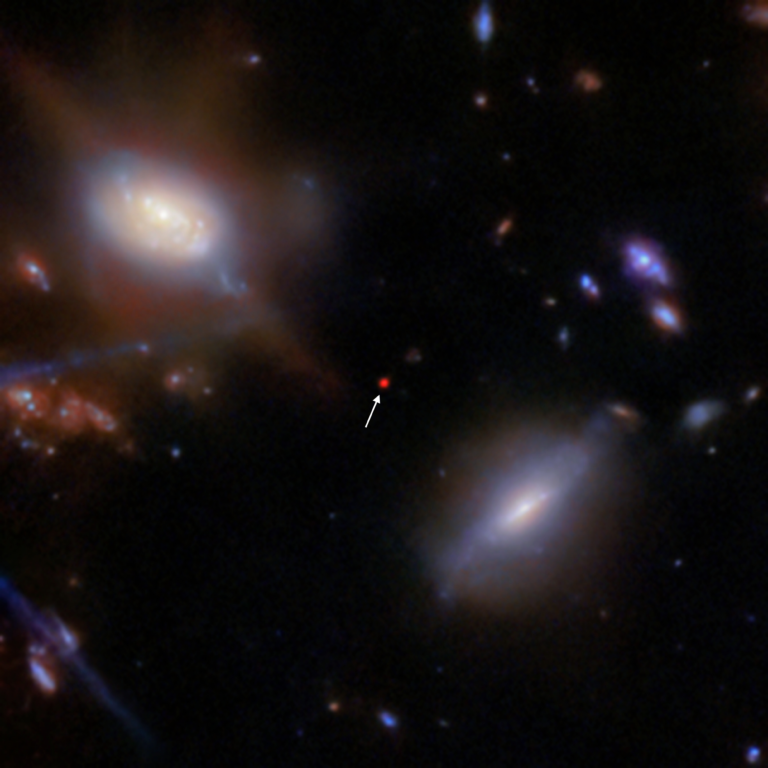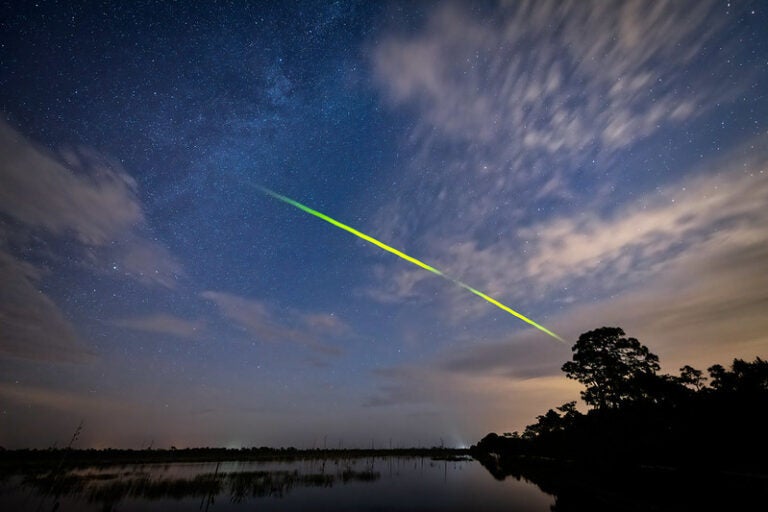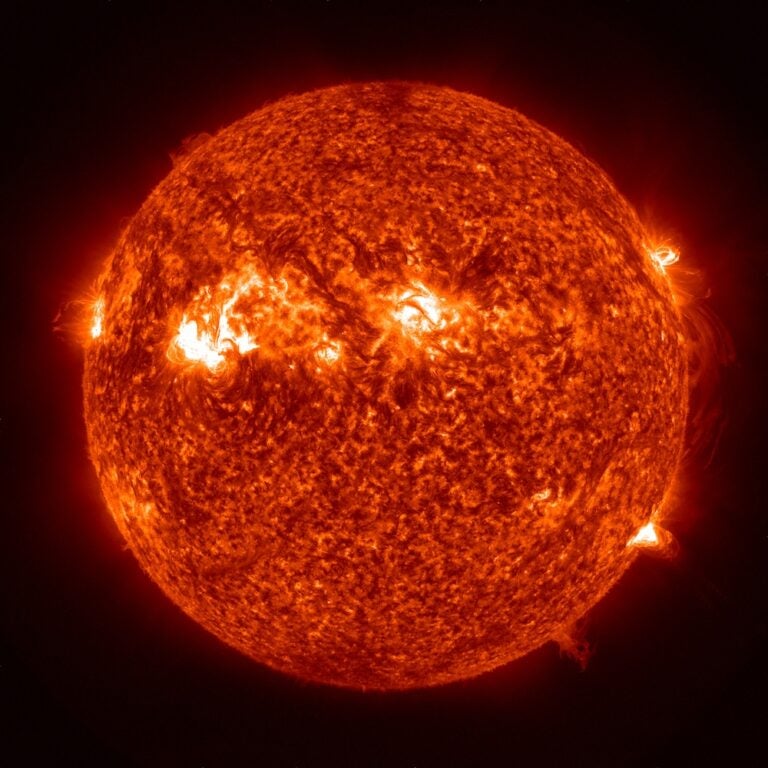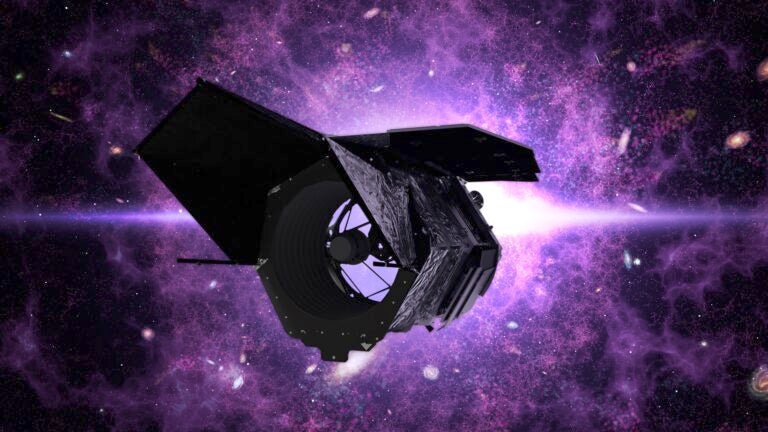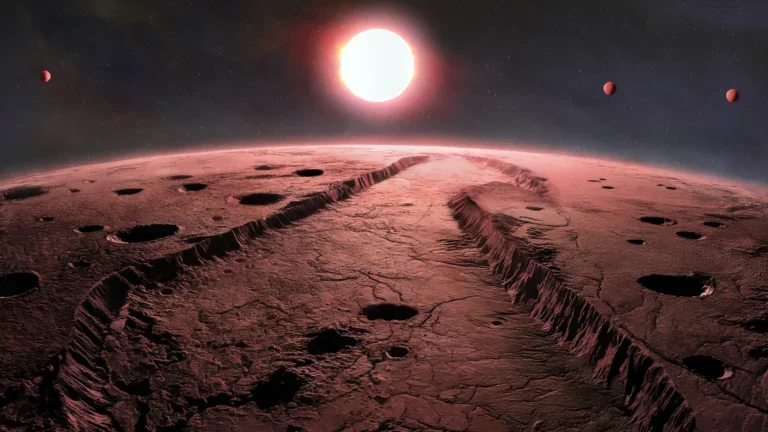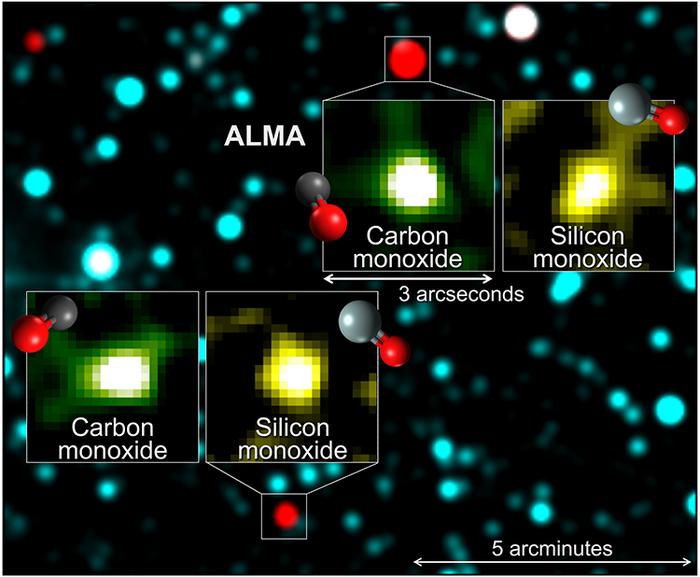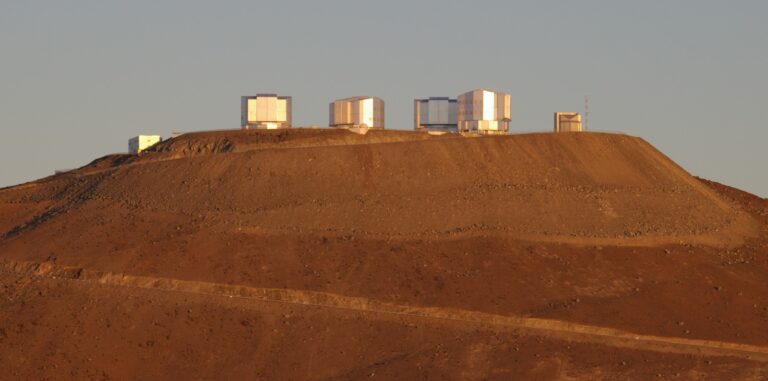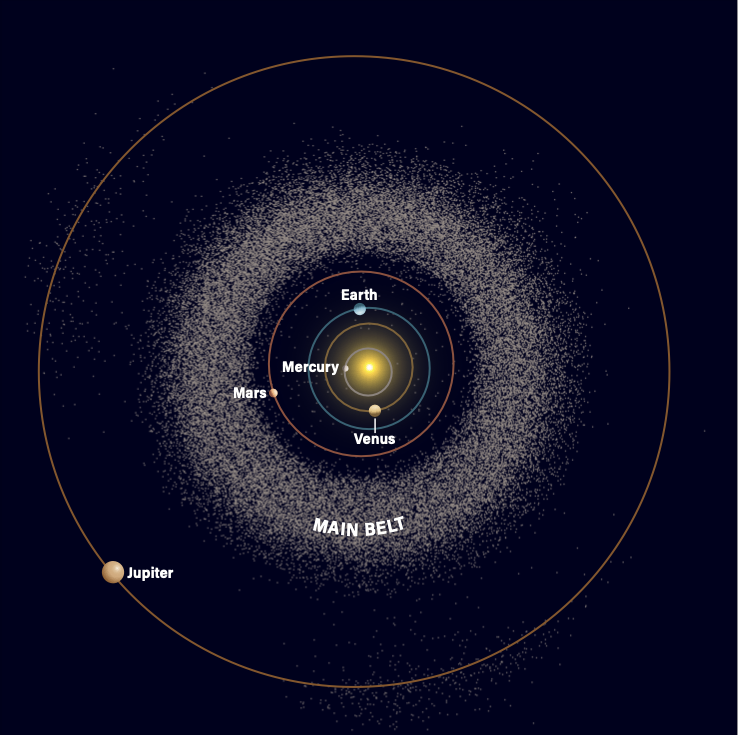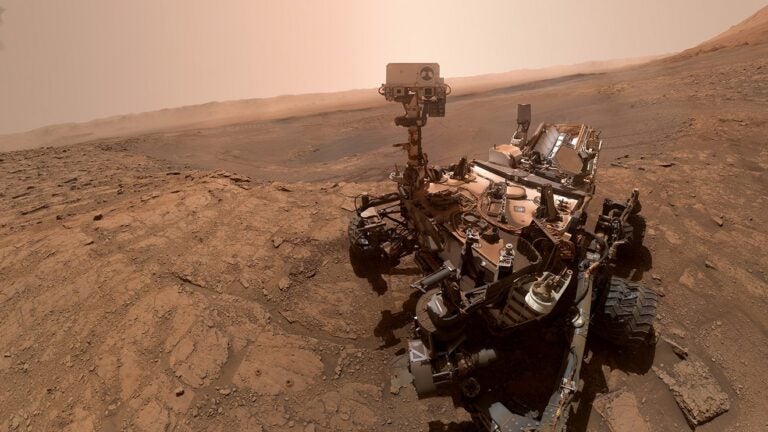However, Einstein’s special relativity introduced the idea of a speed limit for the movement of all fields or information — the speed of light. Einstein constructed his general theory of relativity on the foundation of his earlier and more restricted special relativity, so light-speed remains the universe’s ultimate speed limit.
And indeed, when physicists solve Einstein’s equations, wherever small deviations appear in space-time (the fabric of space in relativity), the gravitational field at a given place and time does not change instantly, but appears “retarded.” That is, changes in the gravity field depend on the source’s earlier behavior — a time delay given by distance from the source divided by the speed of light. These solutions also reveal wavelike ripples that move through space-time precisely at the speed of light. These are gravitational waves.
So, general relativity predicts gravitational interaction and gravitational waves move with the same speed as light. On the other hand, alternative theories of gravity predict, via one mechanism or other, that the speeds could be different. This is why measuring the speed of gravity is an important test of Einstein’s theory.
So far, there is no experimental evidence one way or the other on the speed of gravity. In 2002, one team of experimenters measured the effect of Jupiter’s gravity field on light from a distant quasar as the planet moved in its orbit across the field of view. The group argued that, because of Jupiter’s motion, the deflection experienced by the light rays would be sensitive to the speed at which Jupiter’s gravity field propagated through space. They claimed to have shown the speed of gravity was within about 20 percent that of light.
But other scientists showed decisively that, to the experiment’s level of precision, the effect being measured did not depend on gravity’s speed, but instead depended only on the speed of light. The consensus of scientific opinion is that while the experiment was interesting, it provided no information about how fast gravity moves.
Such a measurement likely will have to wait until we’ve detected gravitational waves directly. A worldwide array of gravitational-wave observatories using laser interferometry now is operational, and there is a reasonable chance, once suitable upgrades are in place, that the array will detect gravity waves successfully before the decade ends.
When this happens, extremely precise measurements may be possible. These advanced detectors will be able to “see” cataclysmic events, such as a supernova or the merger of two neutron stars, at a distance as great as 500 million light-years. By comparing arrival times of the bursts of electromagnetic and gravitational waves with a precision of a few seconds, we could check for any difference in speed to the level of a few parts in 1017. This would be a stunning check of a key prediction of general relativity. — CLIFFORD WILL, WASHINGTON UNIVERSITY, ST. LOUIS

